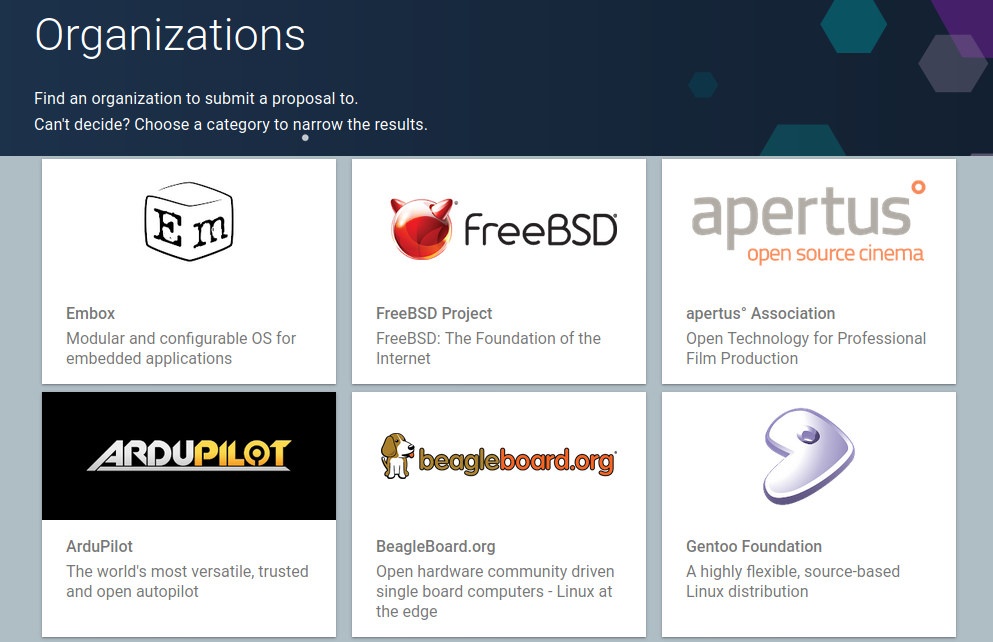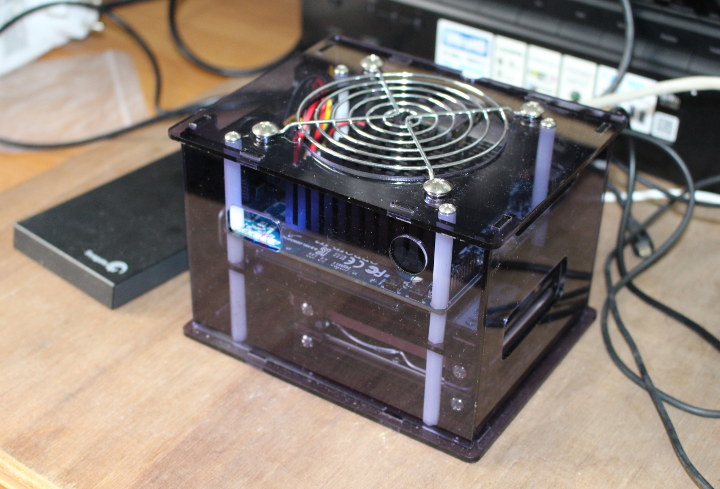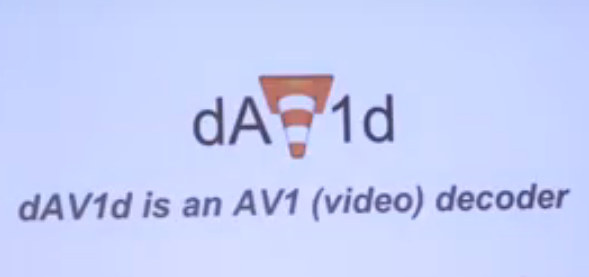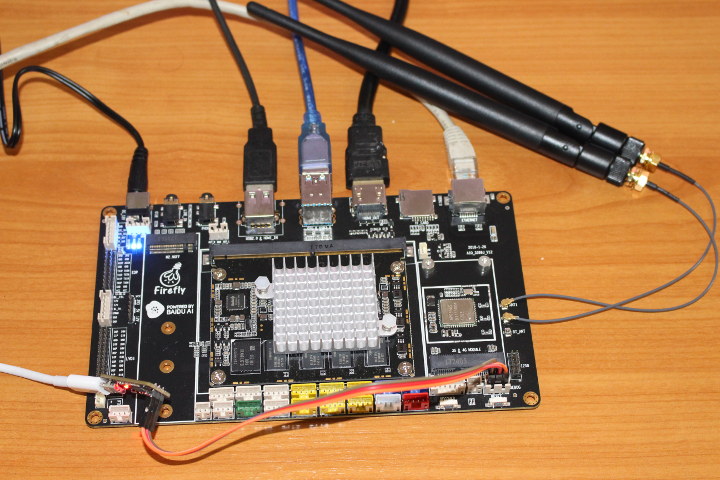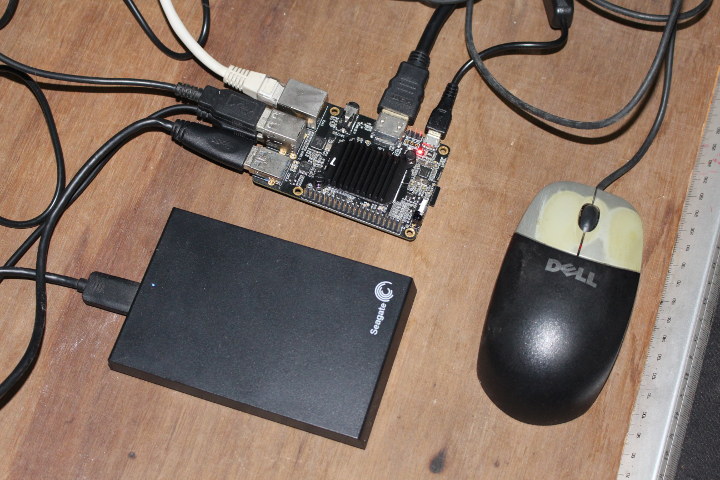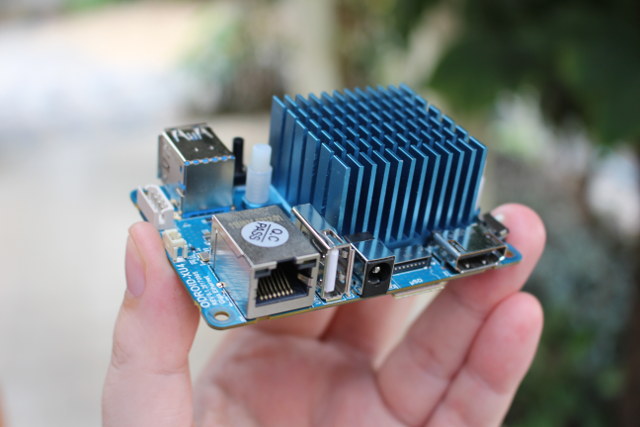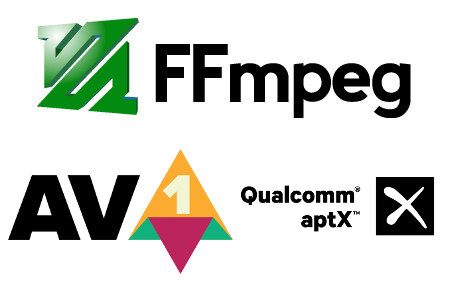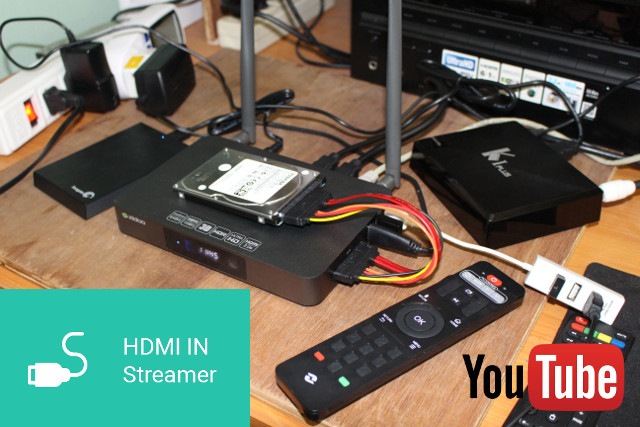Every year Google organizes the Summer of Code inviting students to work on open-source projects and even get paid for it. The company first select mentoring organizations, before accepting applications from students. Google has now announced the 200 organizations/projects that have been selected for Summer of Code 2020. Many projects are higher-level software development such as web development or desktop programs development but there are also projects closer to the hardware-side of things with operating systems and multimedia projects. Some interesting organization and/or projects part of the audio / graphics / video / multimedia category include: apertus Association developing AXIOM open-source hardware camera FFmpeg multimedia framework to decode, encode, transcode, de/mux, stream, filter & play audio and video stream found in many projects OpenCV Open Source Computer Vision Library for computer vision and deep learning applications. XOrg foundation for X Window System and related projects such as Mesa, DRI, Wayland, […]
ODROID-H2 Review – Part 2: Ubuntu 19.04
After many months of delays due to Intel not mass-producing Gemini Lake processors, Hardkernel started selling ODROID-H2 again, more exactly ODROID-H2 Rev. B, and the end of last month, and the company sent me a full kit for evaluation. You can check out ODROID-H Rev. B with Type 3 case and the assembly instructions in the first part of the review. I’ve now had time to play with the board using the pre-installed Ubuntu 19.04 operating systems so I’ll report my experience in this second part. Note that ODROID-H2 does not rely on a custom version of Ubuntu, and instead you can download and flash Ubuntu 18.04 or 19.04 ISO directly from Ubuntu website. First Boot and System Information I had already connected two SATA drives inside the enclosure, one SSD and one HDD, but before booting the device I connected an HDMI cable, one Ethernet cable, USB keyboard & […]
Dav1d Open Source AV1 Decoder Aims to be Fast and Lightweight
Lots of efforts are being put into AV1 open source, royalty-free video codec with the AV1 specification published in March, and companies like YouTube and Netflix having recently uploaded AV1 video samples for testing and evaluation. We also reported FFmpeg 4.0 was released with AV1 supporting using libaom reference decoder. However, the library is not really optimized for code size and speed, but instead just to demonstrate AV1 decoding and encoding. So VideoLAN, VLC and FFmpeg communities have been working on another decoder called Dav1d – which stands for “Dav1d is an AV1 Decoder” – that aims to be lightweight, cross-platform, fast and open source. Some of the technical details about dAV1d include: written in C99 without VLAs (Variable Length Arrays) ASM in NASM/GAS syntax (no intrinsics), Meson/ninja buildsystem, Works on x86, x64, ARMv7, ARMv8 architectures for now Runs on Windows, Linux, macOS, Android, iOS operating systems Licensed under BSD […]
AIO-3399J Development Board Review with Ubuntu 16.04
Regular readers will know that Firefly team sent me several of their Rockchip boards for evaluation, and I started with a review of ROC-RK3328-CC development board powered by Rockchip RK3328 processor. This time, I went with the high-end AIO-3399J board comprised of a features-packed baseboard and a Rockchip RK3399 system-on-module. Just like with the previous review, I’ve decided to focus on Linux support, in this case Xunbuntu 16.04, and I’ll do an Android review on the company releases Android 8.1 for Firefly-RK3399 board. First Boot with AIO-3399J Board Before booting the board, I inserted the heatsink, and connected the provided WiFi antennas. I also connected some devices and cables, including a mouse, the male to male USB cable to the top USB 3.0 (OTG) port for firmware update, a HDMI cable to my TV, and Ethernet cable, as well as the serial debug board. The final step was to connect […]
ROC-RK3328-CC Board Review, or the Case for Fast Storage and Adequate Power Supply
Firefly team from T-chip company has send me some of their Rockchip development boards, and we’ve already checked the provided boards and accessories, so today I’ll report my experience with one of the board: ROC-RK3328-CC also known as Renegade. I won’t test it with Android, since I have already reviewed RK3328 Android TV boxes such as Zidoo X7, and I’ve been told the team is hard at work with Android 8.1 SDK, so an Oreo image should be released in a few weeks/months. So I had initially planned to report my experience with one of the Linux images, then show how to install mainline Linux (currently 4.17) to the board, and reports what works. However, I encountered many issues, although likely not directly related to the board or its software support, so instead I’ll write about my experience getting started with the board, and list all the issues I had […]
Review of Ubuntu 18.04 on ODROID-XU4Q Development Board
Hardkernel released their first Samsung Exynos 5422 octa-core board in July 2014 with ODROID-XU3, which at the time was really a powerful board, but also pricey at $179. Later that year, the company released a cheaper version ($99) called ODROID-XU3 Lite, which I had the chance to review with Ubuntu 14.04 and Android 4.4. The company’s adventure with Exynos 5422 processor did not stop there, as in 2015 they released the smaller and even cheaper ($74) ODROID-XU4 board, and last year launched a fanless version of the board with ODROID-XU4Q featuring a large heatsink. More recently, the company also introduced ODROID-HC1 and ODROID-MC1 solutions for respectively network storage and clusters applications. That’s the short history of Hardkernel Exynos 5422 boards as I remember it, and that means that since 2014, or nearly 4 years so far, the company has kept updating Ubuntu and Android firmware for their board, including the […]
FFmpeg 4.0 Released with Initial AV1 Support, aptX, etc..
Whenever you are playing videos on a machine running Linux, Android or Windows, chances the software is at least partially using code from FFmpeg, a free software project that produces libraries and programs for handling multimedia data. The developers just outed a new major release FFmpeg 4.0 “Wu” which adds new filters, more hardware features, drops Windows XP and ffserver, implements initial AV1 codec support, aptX, TiVo ty+, and more. FFmpeg 4.0 includes the following libraries version:
|
1 2 3 4 5 6 7 8 |
libavutil 56. 14.100 libavcodec 58. 18.100 libavformat 58. 12.100 libavdevice 58. 3.100 libavfilter 7. 16.100 libswscale 5. 1.100 libswresample 3. 1.100 libpostproc 55. 1.100 |
and some of the main changes include: Bitstream filters for editing metadata in H.264, HEVC and MPEG-2 streams Experimental MagicYUV encoder TiVo ty/ty+ demuxer Intel QSV-accelerated MJPEG encoding & overlay filter native aptX and aptX HD encoder and decoder NVIDIA NVDEC-accelerated H.264, HEVC, MJPEG, MPEG-1/2/4, VC1, VP8/9 hwaccel decoding mcompan & acontrast audio filters OpenCL overlay filter video mix filter video normalize filter audio lv2 wrapper filter VAAPI MJPEG and VP8 decoding […]
Instreamer App Streams Zidoo X8/X9S/X10 HDMI Video Input to YouTube Live / RTMP Servers with FFmpeg
Zidoo X8, X9S and the upcoming X10, are TV boxes powered by Realtek RTD1295 processor with an HDMI input. The stock firmware already supports UDP broadcasting, but robbi5 decided he needed more, and designed Instreamer “HDMI IN Streamer” app leveraging work from Danman’s ZidoStream app for Mstar TV boxes and Zidoo’s own VideoAndHdmiIN app. Instreamer app supports the following: Streaming as MPEG-TS to network (unicast/multicast) Streaming in FLV format to RTMP server (e.g. Youtube) No need for intermediate recording file – thus no length limit Streaming runs in background HDMI out is usable as pass-through That looks good. Installation is easy. Download and install the latest Instreamer APK release Download and extract FFmpeg Android binaries to /mnt/sdcard You’ll be able to adjust a few video and audio settings after launching the app (not tested as I don’t have X9S anymore). You can now start a terminal, and stream HDMI input […]


